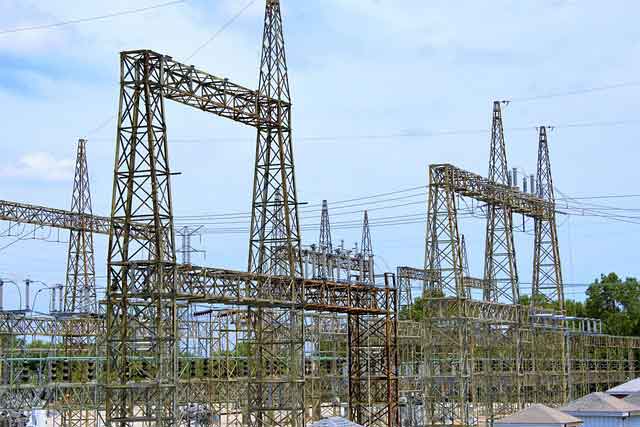Lawmakers mull nuclear as a renewable source
House Bill 2701 seeks to set up a legislative version of renewable energy standards for Arizona that would require companies to get 15 percent of their power from renewable or carbon-free sources by 2025. On the list are traditional renewable sources, such as wind and solar, as well as nuclear and hydroelectric.
If the bill passes, there will be two conflicting energy standards in the state. The ACC’s requirement, passed in 2006, does not include nuclear or hydropower sources. The conflict, which is driving Arizona Public Service Co. officials to oppose the bill in its current form, could require a court ruling to determine which entity — the ACC or the Legislature — has authority to set energy policy.
Arizona Rep. Debbie Lesko, R-Glendale, who sponsored the bill, sees it as the Legislature setting policy and adding more options to promote carbon-free electricity production. ItÂ’s also a reaction to the ACCÂ’s imposed standards, which allow utilities to place a surcharge on utility bills to help pay for distributed solar power.
“If the goal really is to have clean energy, then we have to be open to nuclear and hydro power,” Lesko said.
ACC Chairwoman Kris Mayes said the bill is another attempt by the Legislature to usurp the commissionÂ’s authority to set rates and develop energy plans for the utilities it oversees. She also questioned whether such a bill, if it became law, would be constitutional.
“The short of it is, it’s disastrous for renewable energy and it would surely be the death knell for advancing solar energy in the state,” Mayes said.
The ACCÂ’s standard has been cited several times by economic development officials as one of the keys to luring solar companies to the Valley. Officials of ChinaÂ’s Suntech Power Holdings Co. Ltd. noted the standard as one of the reasons the company chose to locate its first U.S. factory in Goodyear.
The ACCÂ’s standard includes an emphasis on distributed solar energy, rooftop solar systems on homes and businesses. Of the total renewable power generation required of utilities by the ACC, 30 percent must come from distributed energy, split evenly among homes and businesses.
Most business groups have not taken a stance on the bill, but solar business owners are concerned that without the standards, utilities will withdraw their support and cut incentives that have helped fuel solarÂ’s adoption in the state. Utilities have been able to offer solar incentives because of a renewable tariff assessed to every customerÂ’s bill.
“If this bill passed in its current form, my thought is that utilities would retreat from the current program and it would be a skeleton of itself,” said Sean Seitz, president of American Solar Electric, a solar installation company based in Scottsdale.
Lesko doesnÂ’t believe utilities such as Salt River Project and APS would walk away from their plans, which already call for incentivizing solar installations.
“I think (movement to renewables) already is happening at the state level and the federal level, and I don’t think it’s going to go backwards,” she said.
Martin Shultz, vice president of governmental affairs at Pinnacle West Capital Corp., APSÂ’ parent company, said APS doesnÂ’t support the bill because it would give the utility two masters. Additionally, the billÂ’s standards could jeopardize settlement agreements APS reached with the ACC outlining a number of renewable energy endeavors the company is doing in the future.
“Frankly, the devil’s in the details, and we’d prefer if the several branches of government would come together because we are talking about hundreds of millions of dollars in investment,” he said.
SRP, which is not governed by the ACC but has stated it will honor the standard, expects to stay the course. The utility has not taken a position on the bill — but with a wind farm already producing power and plans to build a 20-megawatt solar farm, it is working more renewables into its portfolio, said Russell Smoldon, SRP’s manager of government relations.
“We’re going to wait and see, but it’s not going to affect our resource plan,” he said.
The bill also could be seen as a legislative answer to questions raised in a Goldwater Institute lawsuit, which challenges the ACCÂ’s ability to set policy allowing utilities to assess customers a fee on their monthly bills for renewables. The institute lost the initial lawsuit and is appealing. The judge in the case said the Legislature could set policy, but lawmakers have remained largely silent on the matter until now.
Related News

Germany's Call for Hydrogen-Ready Power Plants
BERLIN - Germany, a global leader in energy transition and environmental sustainability, has recently launched an ambitious call for tenders aimed at developing hydrogen-ready power plants. This initiative is a significant step in the country's strategy to transform its energy infrastructure and support the broader goal of a greener economy. The move underscores Germany’s commitment to reducing greenhouse gas emissions and advancing clean energy technologies.
The Need for Hydrogen-Ready Power Plants
Hydrogen, often hailed as a key player in the future of clean energy, offers a promising solution for decarbonizing various sectors, including power generation. Unlike fossil fuels, hydrogen produces…





